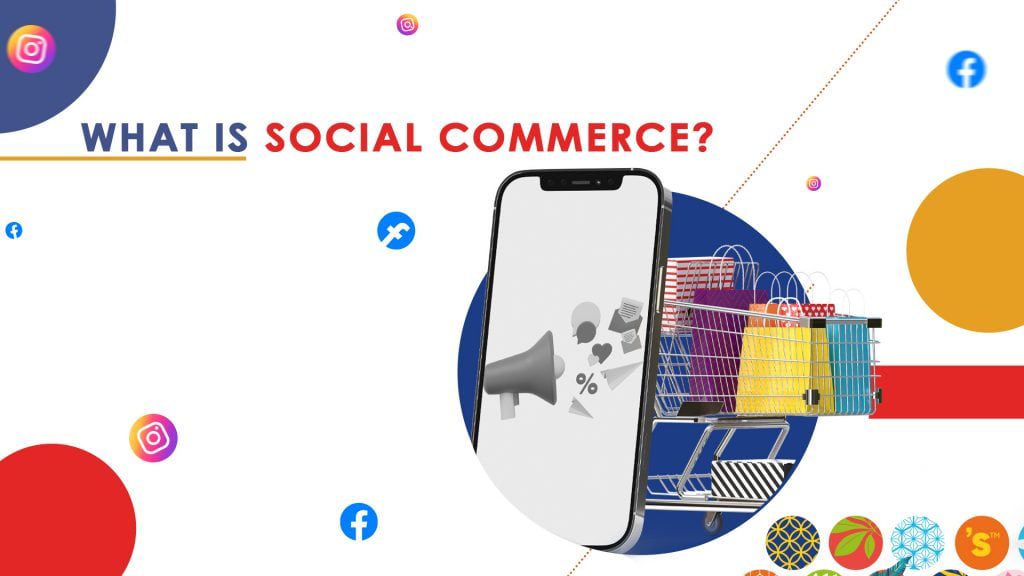In the realm of modern online business, the primary objective for many is to cater to the specific needs of every consumer. This concept has given rise to the phenomenon known as social commerce, wherein numerous businesses utilize social media platforms to showcase and sell their products. A notable example is the proliferation of Facebook groups dedicated to product sales, driven by the desire to generate profits.
However, a critical aspect to consider is the establishment of a genuine rapport with customers. Unfortunately, a significant portion of these endeavors prioritizes monetary gains over building meaningful customer relationships. This business approach, centered around profit-making in the context of social media, is what defines social commerce.
Understanding Social Commerce
Social commerce is the practice of marketing and selling products and services directly through social media platforms such as Facebook, Instagram, and Pinterest. This encompasses various stages of the purchasing process, ranging from the initial shopping experience and product discovery to payment and checkout.
Advantages of Social Commerce
Social commerce, the practice of using social media platforms for buying and selling products or services, offers several advantages for both businesses and consumers. Here are some key advantages of social commerce:
1. Enhanced Interactivity
Social commerce facilitates more interactive interactions between consumers and sellers. This leads to the establishment of enduring relationships, fostering credibility and transparency. This is particularly true when online businesses provide products and services tailored to consumers’ specific needs.
2. Friendship-Driven Recommendations
Consumers have the opportunity to seek advice from their friends regarding their preferred products. This interaction takes place within the same online environment where products are showcased and users are actively engaged.
3. Swift Decision-Making
Social commerce empowers potential customers to quickly alter their purchasing decisions upon encountering new advertisements for products or services.
4. Increased Reach and Visibility
Social media platforms have massive user bases, providing businesses with the opportunity to reach a broader audience and increase their internal branding visibility. This can lead to higher awareness and potential sales.
5. Targeted Advertising
Social media platforms allow businesses to target their ads to specific demographics, interests, behaviors, and preferences. This precision targeting increases the likelihood of reaching the right audience, which can lead to higher conversion rates.
6. Personalized Shopping Experience
Social commerce enables businesses to gather data about users’ preferences and behaviors. This data can be used to create personalized shopping experiences, including personalized product recommendations, special offers, and more.
7. User-generated Content
Social commerce encourages user-generated content such as reviews, testimonials, and user Commercial Photography of products. This content acts as social proof and can influence potential buyers’ decisions, enhancing trust and credibility.
8. Seamless Shopping Process
Many social platforms are integrating shopping features directly into their interfaces, allowing users to discover, browse, and purchase products without leaving the app. This frictionless shopping experience can lead to higher conversion rates.
9. Real-time Interaction
Social commerce facilitates real-time interaction between businesses and customers. This direct communication can help address customer inquiries, provide instant support, and create a sense of engagement.
10. Social Proof and Recommendations
People often rely on recommendations from friends, family, and influencers. Social commerce leverages these recommendations and endorsements, increasing the likelihood of making a purchase.
11. Influencer Marketing
Influencers have substantial followings on social media platforms. Collaborating with influencers can help businesses tap into their followers’ trust and enthusiasm, driving sales and brand exposure.
Read More: What is influencer marketing?
12. Viral Marketing
Social media’s viral nature means that compelling products or promotions can quickly gain momentum and spread organically, leading to increased sales and brand awareness.
13. User Engagement and Loyalty
Social commerce fosters community engagement and loyalty through interactive content, contests, giveaways, and exclusive promotions. This engagement can lead to repeat purchases and long-term customer relationships.
14. Analytics and Insights
Social platforms provide businesses with detailed analytics and insights about customer behavior, engagement rates, click-through rates, and more. This data helps in refining marketing strategies and making informed business decisions.
15. Cost-effective Marketing
Social media platforms offer various cost-effective marketing options, including paid ads with flexible budgets. This makes social commerce accessible to businesses of all sizes.
Read More: How to use minimalism in social media?
16. Global Reach
Social media transcends geographical boundaries, allowing businesses to reach an international audience without the need for physical stores or extensive marketing efforts.
Quick Feedback and Iteration: Businesses can gather quick feedback on products and promotions through social media comments and interactions. This enables them to iterate and improve their offerings rapidly.
Conclusion
Social commerce establishes a mutually beneficial scenario for both sellers and buyers. Buyers gain access to quality products at affordable prices, satisfying their requirements. Simultaneously, sellers attain maximum profitability and the ability to promptly receive customer feedback on their offerings. The effectiveness of this feedback loop depends on the specific business environment and the number of followers engaged.



